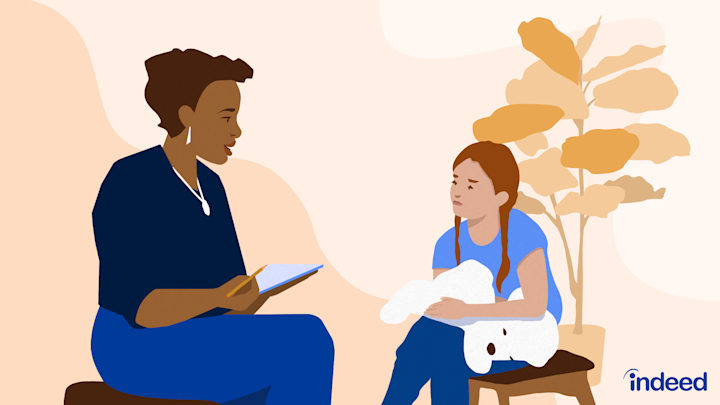Psych Therapy: A Comprehensive Overview to Techniques and Results

Cognitive-Behavioral Treatment
Cognitive-Behavioral Treatment (CBT) is a widely made use of psychotherapeutic method that concentrates on identifying and customizing useless thinking and actions patterns. Developed in the 1960s by Aaron T. Beck, CBT integrates cognitive and behavior theories to resolve various psychological wellness issues, consisting of clinical depression, anxiety, and stress-related conditions.
CBT is defined by its organized, ambitious nature. Therapy commonly entails a collaborative process in between the specialist and client, where certain troubles are recognized, and sensible strategies are developed to address them. Techniques such as cognitive restructuring, direct exposure treatment, and skill-building workouts are frequently utilized. Cognitive restructuring includes challenging and altering negative thought patterns, while direct exposure treatment aims to decrease worry and anxiety through steady direct exposure to been afraid objects or situations.
Evidence-based study supports the effectiveness of CBT for a large range of mental disorders - Best Psychologist in Delhi. Its focus on skill acquisition and self-help strategies empowers customers to proceed development independently after treatment wraps up. The adaptability and efficiency of CBT have made it a keystone in contemporary psychotherapeutic method
Psychodynamic Strategies
Rooted in the very early concepts of Sigmund Freud, psychodynamic techniques concentrate on checking out the unconscious mind and its influence on actions and emotions. These approaches aim to reveal covert ideas and sensations that may be driving maladaptive habits and psychological distress. Central to this method is the principle of inner dispute, often originating from unresolved past experiences, specifically those from childhood.
Therapists using psychodynamic strategies employ a number of vital methods, including cost-free association, where clients are urged to talk freely to reveal unconscious product, and desire evaluation, which analyzes the concealed web content of desires. Furthermore, the expedition of transfer and countertransference characteristics within the healing connection is crucial. These communications can offer understandings into the client's inner globe and relational patterns.
Psychodynamic treatment is generally longer-term compared to other techniques, using a deep and comprehensive understanding of the individual's psyche. Research study suggests that it can be especially efficient for complicated mental health and wellness problems, such as character conditions and chronic anxiety. By fostering self-awareness and emotional insight, psychodynamic treatment looks for to bring subconscious material to consciousness, enabling individuals to achieve meaningful and long lasting adjustment in their lives.
Humanistic Methods
Building on the foundations laid by psychodynamic approaches, humanistic strategies supply a distinct point of view focused on individual possible and self-actualization. Originating in the mid-20th century, these methods prioritize the intrinsic benefits and growth capacity of people, highlighting an all natural view of human experience. Secret numbers such as Carl Rogers and Abraham Maslow have actually substantially influenced this healing approach, which incorporates approaches like client-centered therapy and Gestalt therapy.
Client-centered therapy, established by Rogers, plays a critical duty in humanistic techniques. The specialist's role is more of a facilitator than an authority, urging clients to harness their internal sources for healing.
Gestalt treatment, another crucial humanistic technique, highlights existing moment understanding and the integration of body you can look here and mind. By concentrating on the "right here and currently," customers obtain higher understanding right into their current feelings and actions. Methods such as role-playing and led visualization are commonly employed to help clients obtain a deeper understanding of themselves, eventually causing boosted self-awareness and fulfillment.
Integrative Treatments
Integrative treatments stand for a synthesis of various restorative methods customized to fulfill the distinct requirements of each customer. This strategy recognizes the complexity of human psychology and the diverse nature of psychological wellness concerns. By incorporating elements from different schools of psychotherapy-- such as cognitive-behavioral therapy (CBT), psychodynamic therapy, and humanistic techniques-- integrative treatments use an even more holistic and flexible treatment standard.
Practitioners of integrative therapy assess each client's specific needs, symptoms, and personal background to design a tailored therapy strategy. This personalized technique improves the capacity for therapeutic success by dealing with the origin of mental distress and advertising total wellness. Methods might include mindfulness exercises, cognitive restructuring, and emotional handling, each chosen to target different aspects of the customer's problems.
Moreover, integrative treatments highlight the therapeutic relationship, watching the client-therapist bond as a critical part of efficient treatment. This partnership fosters a supportive setting where clients really feel risk-free to discover and address their concerns. The flexibility of integrative therapies makes them ideal for a wide variety of problems, including stress and anxiety, depression, injury, and interpersonal problems, thereby raising their applicability and performance in varied medical setups.

Gauging Treatment Outcomes
Reviewing the efficiency of psychotherapy is critical for both customers and clinicians to make sure that the treatment is generating the wanted end results. To achieve this, various methods and devices are employed to determine treatment results methodically. Standardized analysis instruments, such as the Beck Anxiety Supply (BDI) and the Generalized Stress And Anxiety Problem 7 (GAD-7), offer measurable information on imp source sign extent and changes with time.
Along with standardized devices, qualitative techniques like client self-reports and scientific meetings offer important understandings right into the personal experiences and viewed development of customers. Frequently set up evaluations, usually at the start, midpoint, and end of therapy, assistance in tracking the trajectory of renovation or recognizing locations needing adjustment.
Result measurement is not restricted to signs and symptom reduction; it also includes practical enhancements in every day life, such as far better social relationships, increased work productivity, and enhanced general wellness. Modern improvements in electronic wellness have actually introduced mobile apps and online systems that assist in real-time surveillance and feedback, further refining the analysis procedure.
Inevitably, a thorough strategy to gauging treatment results makes sure that restorative interventions work, efficient, and tailored to fulfill the specific requirements of clients, thereby optimizing the total healing experience.
Final Thought
Psychotherapy offers a multifaceted selection of methods focused on dealing with specific psychological wellness problems and enhancing total wellness. Cognitive-Behavioral Therapy and psychodynamic strategies target unconscious influences and useless ideas, respectively. Humanistic strategies concentrate on individual go now growth and self-actualization, while integrative therapies integrate multiple approaches for tailored therapy plans. Evaluating treatment outcomes via qualitative methods and standard assessments makes sure a thorough understanding of performance, eventually guiding customers towards withstanding psychological health renovations.
From the structured method of Cognitive-Behavioral Treatment (CBT) to the deep expedition of the subconscious in psychodynamic treatment, each method brings special advantages. Its focus on ability acquisition and self-help techniques equips customers to proceed progression independently after therapy concludes (Best Psychologist in Delhi). Secret figures such as Carl Rogers and Abraham Maslow have actually dramatically affected this therapeutic approach, which includes techniques like client-centered therapy and Gestalt therapy
